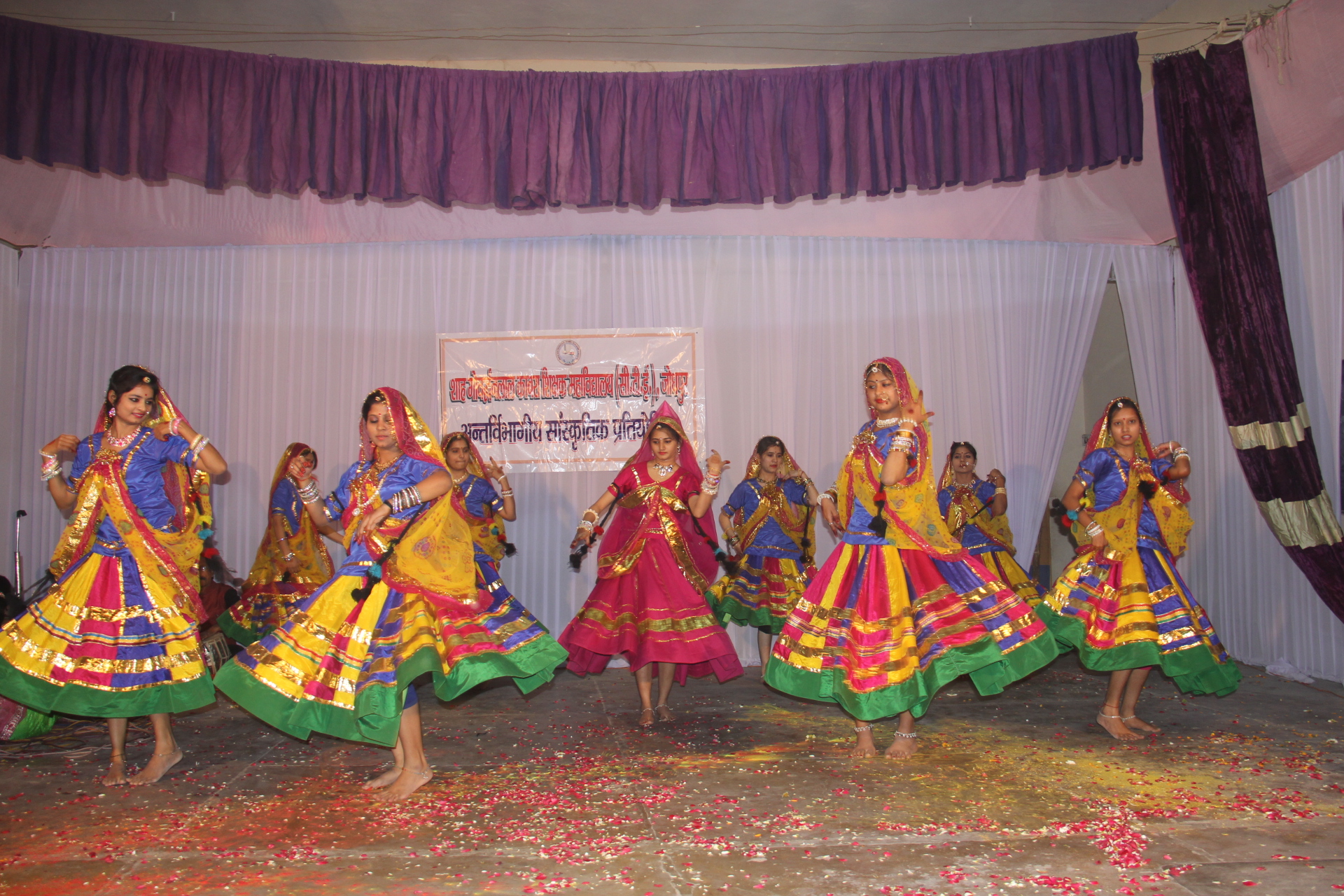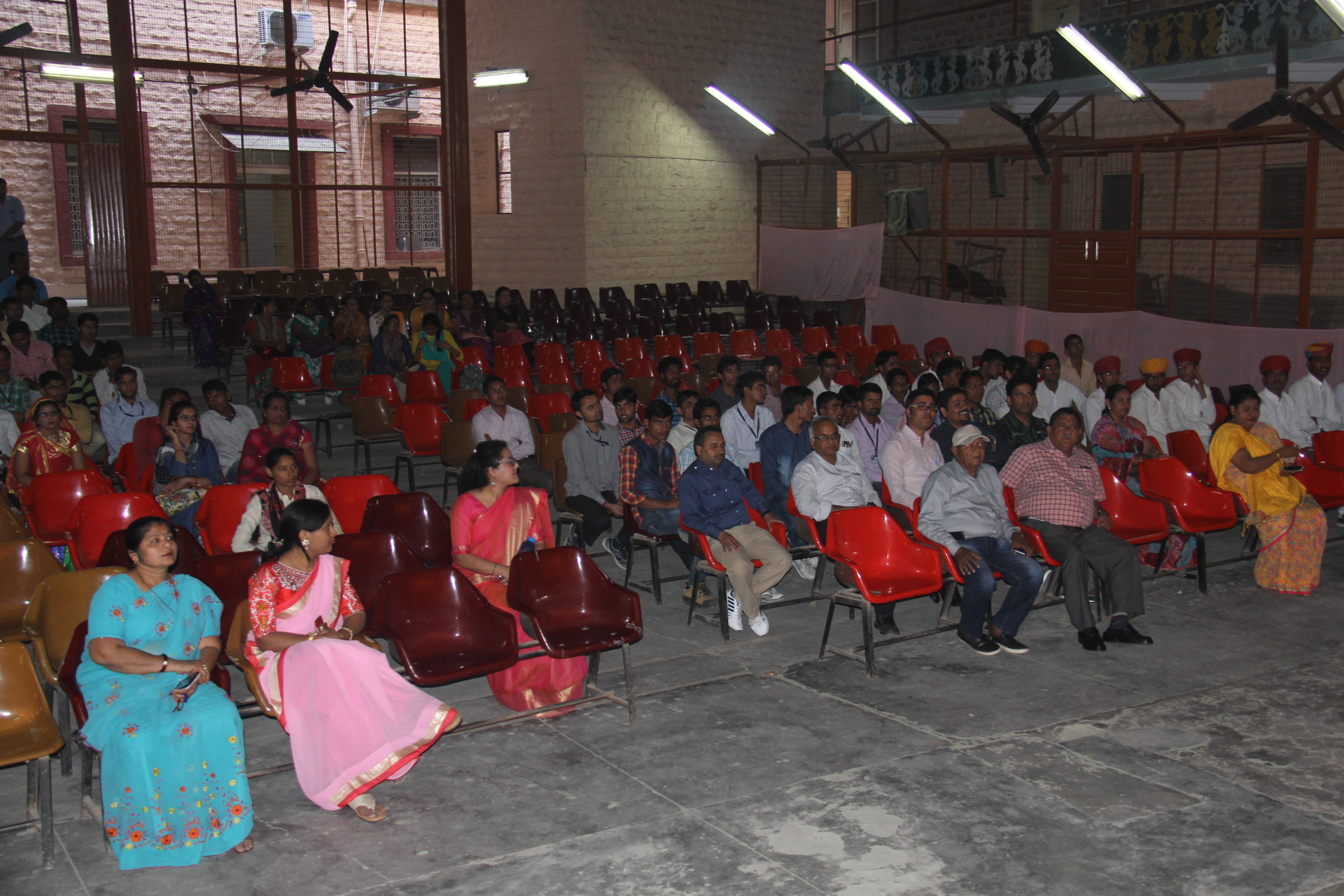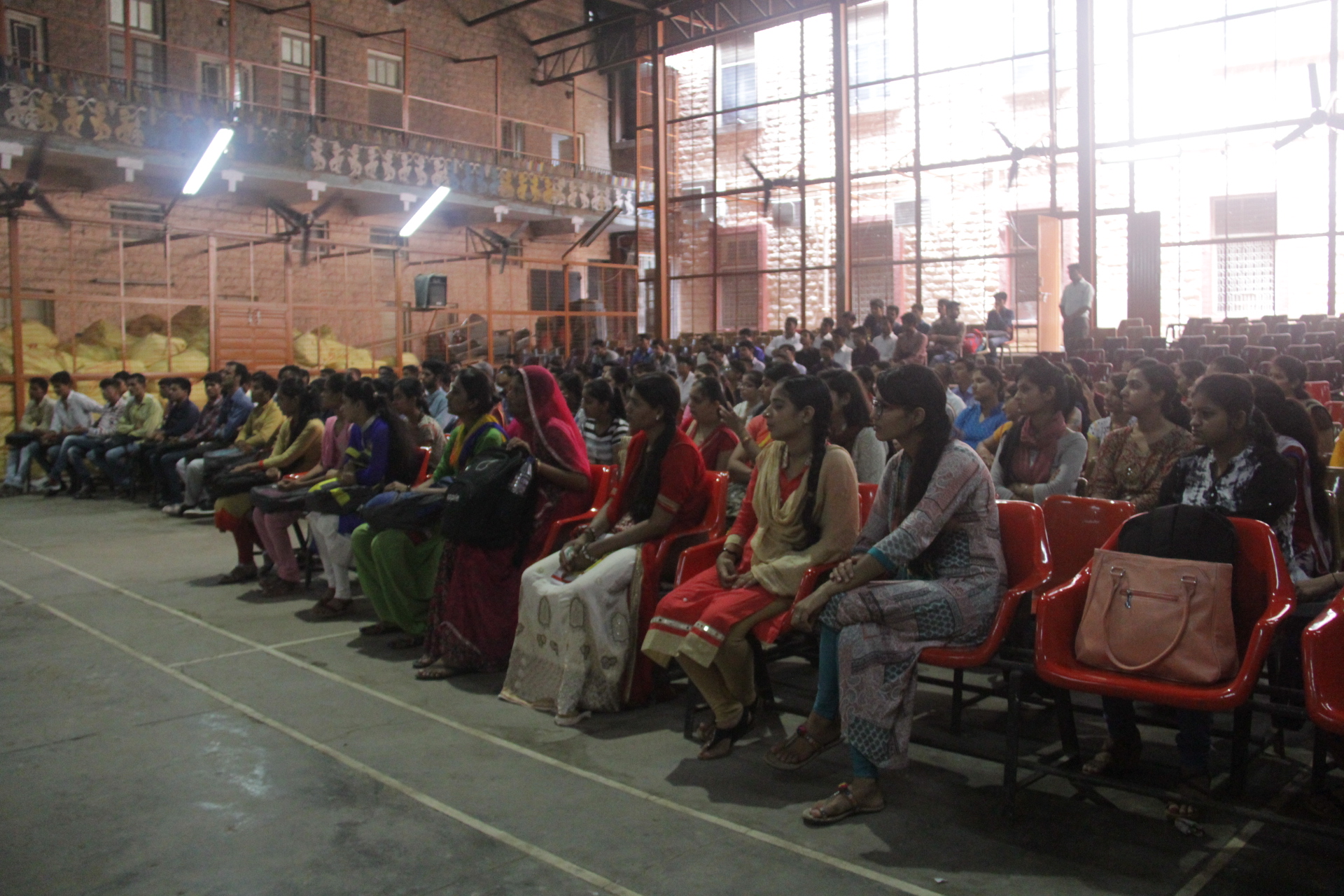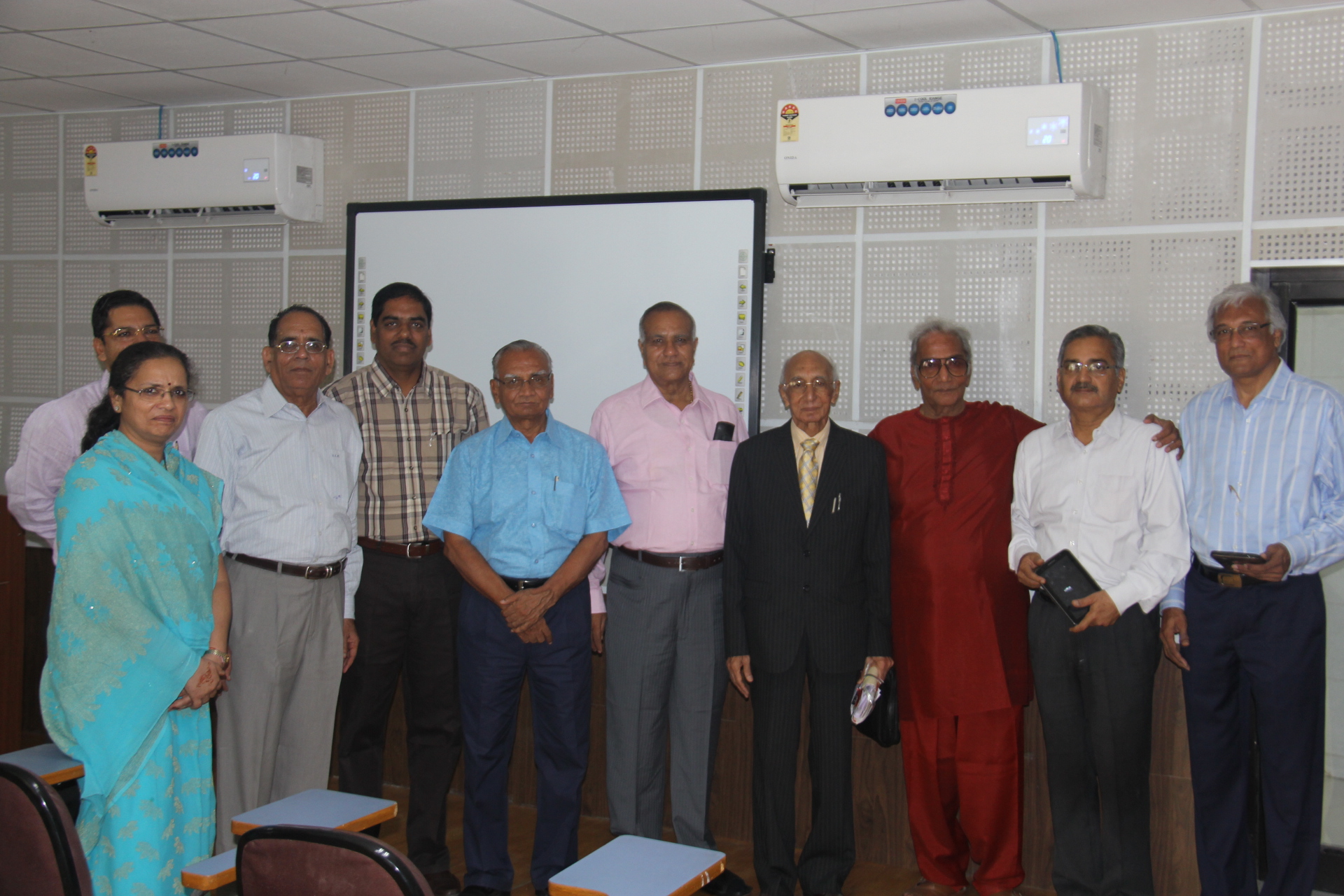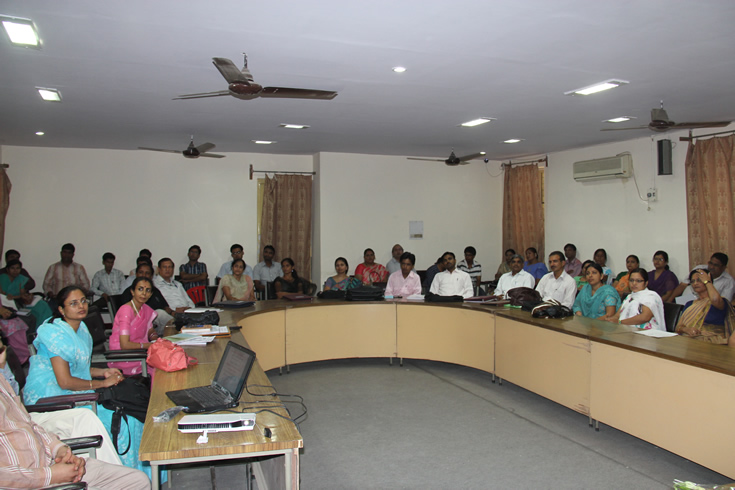Core Course -I Philosophy of Education
Learning Objectives & Outcomes:
After completion of the course, student-teachers will be able:-
Understanding the nature and functions of philosophy of education.
Logical analysis, interpretation and synthesis of various concepts, propositions and philosophical assumptions about educational phenomena.
Understanding and use of philosophical methods in studying educational data.
Critical appraisal of contributions made to education by prominent educational thinkers-both Indian and Western.
To understand and relate philosophical theories with educational practices.
To understand and relate philosophical traditions with educational practice.
COURSE CONTENT
UNIT – I Nature of Educational Philosophy:
Meaning, Concept and nature of Educational Philosophy
Metaphysical problem and education related to nature, man and Society.
Epistemology & Axiology of educational philosophy: Knowledge, Methods of acquiring valid knowledge with specific reference to analytic philosophy, Dialectical approach & scientific inquiry.
UNIT-II Modern concept of Philosophy and Contributions of Thinkers:
Analysis-Logical analysis, Logical empiricism and Positive relativism- (Morris L. Prigge) Contributions of Vivekananda, Tagore Gandhi, Dewey,Krishnamurti, Montessori, Giju bhai, A.Nagraj and Aurobindo to educational thinking.
UNIT- III Indian Schools of Philosophy:
Sankhya, Geeta, Vedanta Yoga, Buddhism, Jainism, Islamic, Traditions with special reference to the concept of knowledge, reality and values and their educational implications.
UNIT- IV Western Schools of Philosophy:
Idealism, Realism, naturalism, Pragmatism, Existentialism; with special reference to the concepts of knowledge, reality and values; their educational implications for aims, contents and methods of education.
Practicum/Field Work:
The students may undertake any one of the following activities and prepare a report. Present this report in a seminar.
(A) Visit a school to study its the philosophical background and prepare a report based on it.
(B) Debate on Epistemology to acquire from the people valid knowledge/ Axiology.
(C) Conduct a play on educational contribution of any one of the above thinkers
(D) Analyze a school activity in the light of Ideas of any thinkers.
(E) Analyse the contribution of Giju Bhai in the light of child centered Education
(F) Conduct a competition examination on educational values of Geeta Darshan in school and prepare a report.
(G) Prepare a report after reviewing common factors to inculcate among Indian philosophy.
(H) Drama or Play on Naturalism.
(I) Identify the common factors between Indian & western philosophies.
REFERENCES-
- Broudy, Harrys, Building a philosophy of Education New Delhi, Prentice Hall
- Dewey Jotin – Democracy and Education, New York.
- Godfrey, Thomasa, Modern Philosophy of education Londan, George G. Harrep & co.
- Kabir, Humayun, Indian Philosophy of Education, New Delhi, Asia Pub House.
- vksM+- ,y- dsa- &f’k{kk ds nk’kZfud ,oa lekt’kkL=h; Hkwfedk & ubZ fnYyh esdfeyu
- feJ vtqZu & n’kZu dh ewy/kkjk,a] e/;izns’k fgUnh xzUFk vdkneha]Hkksiky
- flag ,e-dsa- &f’k{kk ds nk’kZfud ,oa lkekftd vk/kkj] bUVjus’kyu ifCyf’kax gkml] esjB
- lDlsu] ,e-vkj- Lo#i &^f’k{kk ds nk’kZfud ,oa lekt’kkL=h; fl}kUr] yky cqd fMiks] esjB
- pkScs ljHkqizlkn & f’k{kk ds nk’kZfud] ,sfrgkfld vkSj lekt’kkL=h; vk/kkj bUVjus’kuy] ifCyf’kax gkml] esjB
- ik.Ms; jke’kDy]& f’k{kk dh nk’kZfud ,oa lekt’kkL=h; iz”BHkqfe] vxzoky ifCyds’kUl] vkxjk
- vksM-,y-dsa- & f’k{kk dh nk’kZfud iz”BHkqfe] jk-fg-xz- vdkneh] t;iqj
- ipkSjh fxjh’k & f’k{kk ds nk’kZfud ,oa lekt’kkL=h; fl}kUr]bUVjus’kuy ifCyf’kax gkml] esjB
|
Core Course -II Sociology of Education
Learning Objectives & Outcomes:
After completion of the course, student-teachers will be able:-
To enable the student to explain and reflect on- Gender ideology.
Relationship between education and social change with special reference to modernization and globalization.
Relationship between concepts and processes of sociology and education.
Theories and characteristics of sociological analysis and its relation to education.
Understand and explore the meaning, aims, purposes of education
Develop understanding of sociological dimension of education.
Identify and question one’s own long-established presumptions on knowledge, learner, teacher, and education, and develop a more infor M.Ed., meaningful understanding of them.
Expose students to divergent educational thoughts, perspectives and practices, which will help them in creating secure, egalitarian and pedagogically sound learning situations.
COURSE CONTENT
UNIT – I Sociology & Education
(A)Meaning & Nature of Educational Sociology
(B)Interrelationships between Education and Social Variables- School, Family, Peer Group , Politics
(C)Education and culture in general
UNIT-II Contexts of Socialization
(A)Concept of socialization: family and adult-child relationships; parenting, child rearing practices.
(B)Separation from parents, children in creches; children in orphanages.
(C)Schooling: peer influences, school culture, relationships with teachers, teacher expectations and school achievement; being out of school, overage learner.
(D)Relationships with peers: friendships and gender; competition and cooperation, competition and conflict; aggression and bullying from early childhood to adolescence.
(E)Social, economic and cultural differences in socialization: implications for inclusion.
UNIT- III Education as a means of social changes
(A)Concept and implications of social change
(B)Education for emotional & social Integration.
(C)Education for Nationalism and International understanding
(D)Meaning and need of Equality of Education opportunity and Social Justice with special reference to Indian Society
(E)Education of Socially, Economically under-developed society.
UNIT- IV Education and society:
(A)Gender ideology in society. Role of religion, constitution and law in gender ideology. Gender differentiation, stereotyping and inequality in society liberal feminism.
(B)Present status of women’s education in India.
(C)Modernization, globalization in relation to education.
(D)Sociology of education and educational sociology concepts, relationship and functions.
(E)Concept and dimensions of plurality. Curriculum for multicultural education. Teacher’s role in the strategies of multicultural education, Socialization in cultural diversity through education.
(F)Meaning and importance of peace education to address social issues; role.
Practicum/Field Work:
The students may undertake any one of the following activities and prepare a report. Present this report in a seminar.
(A)Make a questionnaire on different aspects of Interrelationship between Education and school and administration on at least 30 students (homogeneous group) to find out the most influencing aspect. Prepare a report on entire activity.
(B)Organise a debate on Education & Culture
(C)Select a psychological tool of socialization and apply on at least 10 orphans and 10 students with parents to find out the result, if there is a difference, suggest proper remedies.
(D)List the first actions you would take to improve the effectiveness of a typical elementary /high school. Defend your list. How do your proposals reflect research on school effectiveness? How do they reflect your personal philosophy?
(E)For your portfolio, prepare an analysis of unusually effective schools of those whose students achieve more than students with similar social background at most other schools. What are the characteristics or correlates of these unusually effective schools? Searching the Internet for “effective schools” will give you access to sites that focus on effective schools.
(F)Prepare a plan for the mobilization of different types of resources for a school from the community.
(G)Collect and analyze information about cooperation between schools and other institutions (such as businesses and colleges) in your community. To what extent has such cooperation helped the schools?
(H)Conduct a Seminar on Peace Education
REFERENCES-
- Dewey John- Democracy and Education. New York
- vksM- ,y ds& f’k{kk ds nk’kZfud ,oa lekt’kkL=h; Hkqfedk & ubZ fnYyh esdfeyu
- feJ vtZqu & n’kZu dh ewy/kkjk,] e/;izns’k fgUnh xzUFk vdkneh] Hkksiky
- Horne, H.H.- Democracy and education. longnors green. London.
- flag ,e ds & f’k{kk ds nk’kZfud ,oa lkekftd vk/kkj] bUVjus’kuy ifCyf’kax gkml
- lDlsuk] ,e]vkj Lo#i & f’k{kk ds nk’kZfud ,oa lekt’kkL=h; fl)kUr yky cqd fMiks
- pkScs ljHkqizlkn & f’k{kk ds nk’kZfud ,sfrgkfld vkSj lekt’kkL=h; vk/kkj bUVjus’kuy ifCyf’kax gkml] esjB
- ik.Ms; jke’kdy& f’k{kk dh nk’kZfud ,oa lekt’kkL=h; i`”BHkwfe vxzoky ifCyds’kUl. vkxjk
- vkM- ,y-ds & f’k{kk dh nk’kZfud i`”BHkwfe] jk-fg-xz- vdkneh t;iqjA
- ipkSjh fxjh’k & f’k{kk ds nk’kZfud ,oa lekt’kkL=h; fl)kUr. bUVjus’kuy ifCyf’kax gkml] esjB
- #gsyk] lR;iky & f’k{kk ds lekt’kkL=h; ifjizs{;] vk;Zcqd fMiks ubZ fnYyhA
|
Core Course -III Curriculum Studies
Learning Objectives & Outcomes:
After completion of the course, student-teachers will be able:-
Conceptualize the meaning and different perspectives of curriculum
Understand the epistemological, sociological and the psychological basis of curriculum development.
Understand the different types of curriculum with respect to their main orientation and approaches
Compare and analyse the National curriculum framework over the years with respect to their foundational considerations, concerns, priorities and goals.
COURSE CONTENT
UNIT – I Perspectives on curriculum
(A)Meaning, Concept and importance of curriculum
(B)Four perspectives on curriculum
a.Traditionalists
b.Conceptual-Empiricists
c.Reconceptualisits
d.Social constructivists
(C)Concept of Core curriculum, Hidden Curriculum, Spiral Curriculum, integrated curriculum and their relevance.
UNIT-II Construction & Development of Curriculum
(A)Curriculum framework -need and importance; ramification of curriculum framework into curriculum, syllabus and textbooks.
(B)Different Models
(C)Administration
(D)Grass Root
(E)Demonstration
(F)System Analysis
UNIT- III Bases of Curriculum Development
(A)Epistemological bases: Forms of Knowledge, structure of a Discipline; characteristics of different Disciplines and levels of understanding; Logical grammar of school subjects.
(B)Sociological bases: societal needs and aspirations, culture and values, social changes, knowledge explosion, national concerns and goals, globalisation, localization and privatization, political ideology and technological influences, economic necessities; Socio-cultural context of students – multicultural, multilingual aspects.
(C)Critical issues: environmental concerns, gender differences, inclusiveness, value concerns and issues, social sensitivity.
UNIT- IV Curriculum Administration & Evaluation
(A)Taylorism
(B)Administration as a process.
(C)Administration as a bureaucracy
(D)Human relation approach to Administration.
(E)Formative, Summative & Interpretation of Evaluation results.
Practicum/Field Work:
The students may undertake any one of the following activities and prepare a report. Present this report in a seminar.
(A)Organise a Debate on perspective of curriculum.
(B)Find out the component of hidden curriculum in the syllabus of M.Ed. (any one semester)
(C)Preparation and presentation of papers on comparative study of curriculum of other states of India at different levels.
(D)Study of National Policies of Education -1986, 1992(modified version) and POA on NPE-1996 in relation to National curriculum frameworks that were developed later.
(E)Detailed study of National curriculum framework of school Education, India (1988, 2000, 2005) followed by seminar presentation.
(F)Study a curriculum of any level of education and find out their bases of construction. Prepare a report.
(G)Review a curriculum of Teacher education in the light of critical issues.
(H)Study the Evaluation process at School Level and Prepare a report with suggestive measures for its improvement.
(I)Conduct a Seminar on Curriculum Administration and Evaluation
REFERENCES-
- Bob Moon and Patricia Murphy (Ed) (1999). Curriculum in Context. Paul Chapman Publishing, London.
- Butchvarov,P.(1970), The Concept of Knowledge, Evanston, Illinois: North Western University Press.
- Chomsky, N (1986). Knowledge of Language, Prager, New York.
- Datta, D.M. (1972). Six ways of Knowing. Calcultta University Press, Calcultta.
- Dewey , John. The Child and the Curriculum, University of Chicago Press: Chicago
- G.W. Ford and Lawrence Pungo,(1964). The structure of Knowledge and the curriculum. Rand McNally & Company, Chicago.
- Joseph Schwab, (1969). The Practical: A language for curriculum. School Review, November.
- Keddie, N.(1971) : Classroom Knowledge, in. M.F.D Young..
- Kelley, A.B. (1996). The Curricular Theory and Practice. Harper and Row, US.
- Kumar Krishna (1997). What is Worth Teaching, Orient Longman, New Delhi.
- Margaret, K.T. The open Classroom, Orient Longman: New Delhi, 1999.
- Nirantar (1997). Developing a Curriculum for Rural Women, Nirantar, New Delhi.
- P.H. Phenix,(1964). Realms of Meaning. MacGraw-Hill, New York.
- Padma M. Sarangapani (2003). Constructing School Knowledge, An Ethnography of learning in an Indian Village, Sage Publication Inc., New Delhi.
- Paul Hirst: Knowledge and Curriculum
- Prema Clarke (2001). Teaching & Learning: The Culture of pedagogy, Sage Publication, New Delhi.
- Steven H. Cahn (1970). The Philosophical Foundation of Education, Harper & Row Publishers, New York.
- Taba, Hilda (1962). Curriculum Development. Theory and Practice, Har Court, Brace and Wald. New York.
- Tyler, R.W. (1949). Basic Principles of Curriculum and Instruction. Chicago: University of Chicago Press.
|
Core Course -IV PRE-SERVICE AND IN-SERVICE TEACHER EDUCATION
Learning Objectives & Outcomes:
After completion of the course, student-teachers will be able:-
Gain insight and reflect on the concept and the status of pre-service and in-service teacher education
Be acquainted with the content, and organisation of pre-service teacher education curriculum, infrastructure and resources needed, and the issues and problems related to teacher preparation
Examine the existing pre-service and in-service teacher education programmes from the view point of policy and its relevance to the demands of present day school realities
Involve in various activities and processes of a teacher education institution, in order to gain an insight into the multiple roles of a teacher educator and understand the organisational culture.
Develop competence in organisation and evaluation of various components of a preservice and in-service teacher education programmes
Design in-service teacher professional development program/activities based on the needs of teachers
Critically examine the role and contribution of various agencies and regulating bodies in enhancing the quality of teacher education.
Understand and appreciate the research perspective on various practices in teacher education.
Develop professional attitudes, values and interests needed to function as a teacher educator
COURSE CONTENT
UNIT – I Structure, Curriculum and Modes of Pre-service Teacher Education
(A)Pre-service teacher education – concept, nature, objectives and scope.
(B)The structure of teacher education curriculum and its vision in curriculum documents of NCERT and NCTE
(C)Components of pre-service teacher education – foundation courses, subject specialisation and pedagogy, special fields, school based practicum and internship -weightages in course work and evaluation
(D)Modes of pre-service teacher education – face-to-face (linear and integrated), distance and online – relative merits and limitations
UNIT-II Organisation of Different Components of Teacher Education Curriculum
(A)The student teacher as an adult learner – characteristics. The concept of andragogy and its principles
(B)Organisation, transaction and evaluation of different components of teacher education curriculum – existing practices.
(C)Transactional approaches for the foundation courses – Expository, Participatory, Collaborative, Peer coaching, and Inquiry. Scope and possibilities for organisation and evaluation
(D)Transactional approaches for the skill and competency development courses – need for awareness-modeling-analysis-practice-feedback cycle – scope and possibilities for organisation and evaluation – practicum records and portfolio assessment
(E)Concept and scope of school based practicum and internship – the existing practices, their nature, objectives, organisation and duration. Activities and experiences in pre-internship, internship and post-internship
UNIT- III In-service Teacher Education in India – Concept, Structure and Modes
(A)Concept, need for continuing professional development of a teacher – areas of professional development. Purpose of an in-service teacher education programme – orientation, refresher, workshop, seminar and conference – their meaning and objectives
(B)The structure for in-service teacher education – sub-district, district, state, regional and national level agencies and institutions.
(C)Modes and Models of in-service teacher education:
(i)Modes of in-service teacher education-face-to-face, distance mode, online and mixed mode.
(ii)Induction, one shot, recurrent, cascade, multi-site, school based and course work scope, merits and limitations of each of them
UNIT- IV Planning, Organising and Evaluating an In-service Teacher Education
(A)Planning an in-service teacher education programme – preliminary considerations of purpose, duration, resource requirements, and budget.
(B)Designing an in-service teacher education programme – steps and guidelines – assessment of training needs, formulation of training curriculum, preparation of course material
(C)Organising an in-service teacher education programme – common problems faced by a teacher educator and guidelines for communication, arrangement, preparation, facilitating participation and collecting feedback and evaluation.
(D)Qualities and characteristics of an effective in-service teacher educator.
Practicum/Field Work:
The students may undertake any one of the following activities and prepare a report. Present this report in a seminar.
(A)A comparative study of state and national curricula of pre-service teacher education in terms of their components, weightages, duration, organisation, transaction and assessment – document analysis
(B)A review of the understanding developed on teacher roles and functions from various relevant sources and present the review report in class.
(C)Analyse the existing B.Ed/M.Ed curriculum of any university in the light of Organisation, transaction and evaluation of different components.
(D)Organize a Workshop on skills and competency development.
(E)Interview practicing teachers to identify the nature of in-service teacher education received and the felt needs.
(F)Make a Critical study of an in-service teacher education programme in terms of their need and relevance, duration, planning, organisation and outcomes – document analysis.
(G)Make an Evaluation of any one of the in-service teacher training programme organised by any one of the resource institutions
(H)Workshop on Design, implementation and evaluation of a training programme.
(I)Critical analysis of all the aspects of any one in-service training programme with suggestive action plan.
(J)Planning, organizing and assessing the effectiveness of an in-service training programme with the help of teacher educator.
REFERENCES-
- NCTE (2009) National Curriculum Framework for Teacher Education, New Delhi.
- NCERT (2005): Position paper on Teacher Education for Curricular Renewal, New Delhi.
- UNESCO (2006): Teachers and Educational Quality: Monitoring Global Needs for 2015. UNESCO Publication. Montreal.
- The Reflective Teacher: Organization of In-service Training of the Teachers of Elementary Schools under SSA, Guidelines, by NCERT (2006).
- Report of the Education Commission (1964-66).
- Report of the National Commission on Teachers (1983-85).
- National Curriculum Frameworks for Teacher education, 2009
- Report of the Delors Commission, UNESCO, 1996
- National Policy of Education 1986/1992.
- National Curriculum Framework on school education, NCERT (2005).
- Govt. of India, MHRD (2005). Universilisation of Secondary Education : Report of the CABE Committee, New Delhi
- Beck, Clive & Clark Kosnik Albany (2006): Innovations in Teacher Education: A Social Constructivist approach. State University of York.
- Cohen Louis, Minion Lawrence & Morrison, Keith (2004). A Guide to Teaching Practice (5th edition). Rout ledge Falmer. London and New York.
- Herne Steve, Jessel John & Griffith, Jenny (2000). Study to Teach: A Guide to Studying in Teacher Education. Rout ledge Falmer. London and New York.
- Korthagen, Fred A.J.et al; (2001): Linking Practice and Theory: The Pedagogy of Realistic Teacher Education. Lawrence Erlbaum Associates.
- NCTE (1998): Policy Perspectives in Teacher Education. New Delhi.
- NCTE (1998). Competency Based and Commitment Oriented Teacher Education for Quality School education: Pre-Service Education. New Delhi.
- Rao, Digumarti Bhaskara (1998). Teacher Education in India. Discovery Publishing House. New Delhi.
- Linda Darling, Harmmond & John Bransford (2005): Preparing Teachers for a changing World. John Wiley & Son Francisco.
- Loughran, John (2006): Developing a Pedagogy of Teacher education : Understanding Teaching and Learning about Teaching. Routledge: New York.
- Yadav, M.S. & Lakshmi, T.K.S. (2003): Conceptual inputs for Secondary Teacher Education: The instructional Role. India, NCTE.
- Day, C. & J. Sachs, J. (Ed.) (2004): International Handbook on the Continuing Professional Development of Teachers. Maidenhead, Brinks Open University Press.
- Mohammad Miyan (2004). Professionalisation of Teacher Education. Mittal Publications. New Delhi.
- NCTE. (1998). Policy Perspective in Teacher Education- Critique and Documentation. NCTE New Delhi.
- Reimers, Eleonora Villegas (2003): Teacher Professional development: an international review of the literature. UNESCO: IIEP, Paris.
- Siddiqui, M.A. (1993). In-Service Education of Teachers. NCERT. New Delhi.
- Mudhopadyay,Sudesh and Anil Kumar K (2001) Quality Profiles of secondary schools, NIEPA, New Delhi
- Chopra, R.K. (1993) Status of Teachers in India, NCERT, New Delhi
- Govt. of India (1953) Report of Secondary Education Commission, New Delhi
- Govt. of India (1996) Indian Education Commission (1964-66) Report. New Delhi
- Govt. of India – (1986/1992) National Policy of Education, 1992 Modification and their POA’s, MHRD, Dept. of Education
- Malhotra, P.L. (1986) School Education in India: Present Status and Future Needs NCERT, New Delhi
|
| S.No. |
Name of the Papers |
| 1 |
Course Code M.Ed.-SC-II Computer application skill |
|
Skill Course-II
Course Code M.Ed.-SC-II
COMPUTER APPLICATION SKILL
Learning Objectives & Outcomes:
After completion of the course, student-teachers will be able:-
To understand Computer System and its working.
To understand and operate Windows Operating System.
To develop the skill of using Windows and all applications of windows.
To understand the Educational Application of Computer in the field of Teaching.
To develop positive attitude towards handling of Computers.
COURSE CONTENT
(A)Computer- meaning, components and their functions.
(B)Windows-Basic feature of Windows, Windows and its accessories -Windows Explorer, Notepad, WordPad, File & Folder, Shortcuts, Find, Setting etc., MS-Office: MS-Word (Text Management), MS-Excel (To Support database and graphics), Power Point (Preparation of Slides).
(C)Concept of Multimedia and its educational uses.
(D)Computer as teaching Machine.
(E)Computer Aided Instruction (CAI) – Concept and Modes.
(F)Role of Computers in Education System (eg. Library Management, Educational Management and Research, School Management,Distance Education, Education of Special Children etc.)
Practicum/Field Work:
(A)Prepare Curriculum Vitae
(B)Prepare Mark sheet
(C)Prepare Tabulation sheet
(D)Prepare power point presentation on any theme
(E)Plan a lesson using multimedia
Note
- Mode of transaction of this course will be workshop.
|
| 2 |
Course Code M.Ed.-SC-II Personality development and public speaking |
|
Skill Course-II
Course Code M.Ed.-SC-II
PERSONALITY DEVELOPMENT AND PUBLIC SPEAKING
Learning Objectives & Outcomes:
After completion of the course, student-teachers will be able:-
To Understand Personality Development And Public Speaking And Its Importance In Personal And Professional Life .
To Understand Stimulus Variation Skill And Its Importance In Developing Personality
To Develop The Skill Of Presentation.
To Develop The Essential Qualities For Effective Public Speaking.
To Develop Positive Attitude Towards Personality Development.
To Develop The Skill Of Effective Public Speaking Skills.
To Develop The Skill Of Using Computers During Public Speaking.
COURSE CONTENT
(A)Personality-Meaning and concept, factors affecting Personality Development.
(B)Communication-concept, meaning, elements of good communication, Language and its importance in communication, Use of phrases and idioms
(C)Skill of Stimulus variation-meaning, Components of Skill
(D)Public Speaking-meaning concept, importance of good public speaking in personal life and career, Essential skills for public speaking-Stage presence , Voice control, Body language , Delivery, Audience relation; How to overcome Glossophobia ( the fear of public speaking),
(E)Presentation Skill-Factors and benefits, Body Language and its importance in presentation Skills, Presentation in front of students, Officials, Meeting, Conferences
(F)Use of Computers while delivering a lecture, presenting a paper in conference
Practicum/Field Work:
(A)Organise 10 days practice programme on stimulus variation skill.
(B)Present a theme in front of audience using all components of public speaking.
(C)Present a paper in a group by creating simulated conditions for seminar.
Note
- Mode of transaction of this course will be workshop.
|
|




